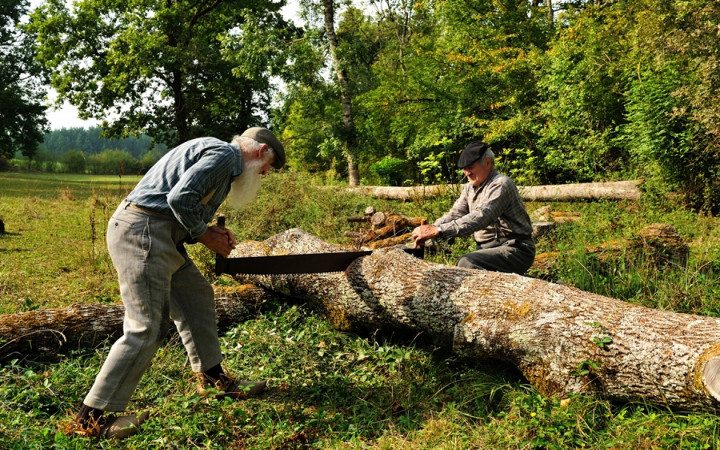What do you want to be when you grow up? Today, that question might be answered thousands upon thousands of ways. For example, you might want to be a doctor, a lawyer, a writer, a programmer, or a musician.
However, you probably didn't list typewriter repair expert, blacksmith, or cobbler in your list. Why is that? These are all jobs that people had in the past. Due to advances in technology, however, these and many other occupations have largely or entirely become obsolete.
When the first human beings walked upon Earth, there were probably only a couple of jobs: hunter and gatherer. To survive, you would've needed food. To get food, you either had to hunt animals or gather plants and berries.
As human societies began to form and grow, other occupations were required. A village might have needed someone who specialized in taking care of those who were sick. Someone else might have been in charge of creating and maintaining fire.
Over time, civilizations continued to form and grow. As advancements in basic forms of technology were made, more and more jobs were created. People would see a basic need, fulfill it with hard work, ingenuity, or a new invention, and create a new profession at the same time.
By the time the Industrial Revolution rolled around in the 1800s, there were many different occupations. Adults and children alike might work in mills or factories. Others might have run stores or become experts at a particular craft.
Most people a couple hundred years ago, though, worked on farms. Societies were still largely agrarian, and farms required lots of workers. From cutting wood and taking care of animals to repairing fences and planting crops, farm jobs were plentiful.
Farm communities also needed teachers. Schools had to be built, so expert woodworkers and stonemasons were also in demand. To clothe a growing community, workers were also needed to manufacture textiles and seamstresses were required to fashion it into clothing.
As societies modernized, so did the occupations that were available. Jobs in education grew, as schools grew and institutions of higher learning expanded. As science advanced, whole new areas opened up for new specialty doctors and research scientists. A new category of service jobs also opened up, as more stores and restaurants began to serve a more modern, wealthier population.
Today, many of these jobs of the past have gone by the wayside. For example, the invention of the personal computer has mostly done away with the need for typewriter repair. With each advance in technology, though, many more new jobs are added to replace those that become obsolete.
For example, take a look around today's society and notice how many people have jobs that are related in some way to the Internet. None of those jobs existed a few decades ago. In fact, no one 100 years ago could've even imagined such jobs!




